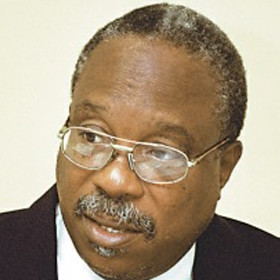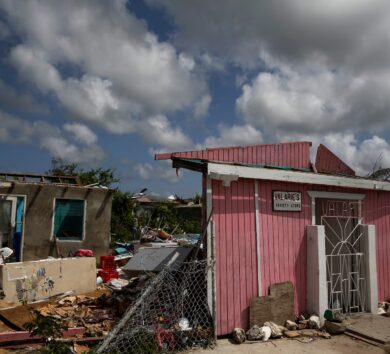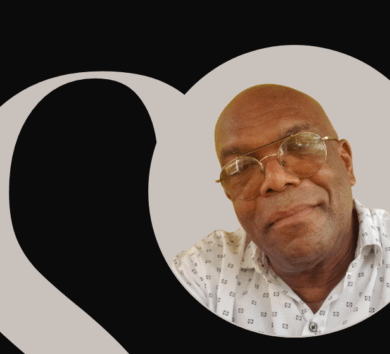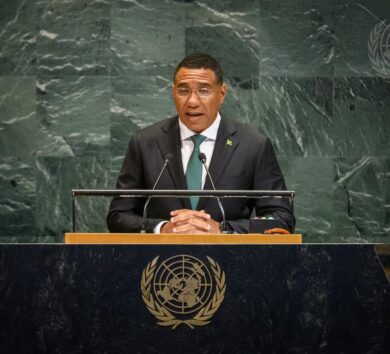

Across the Caribbean Community, the civic bloodstream is thinning.
What we face is not a sudden heart attack of democracy, but a slow anaemia—a depletion of civic oxygen caused by indifference. Jamaica and Trinidad & Tobago, once models of democratic energy, now lead the region in civic exhaustion. Sir Alexander, Dr Williams, and Father Manley retch in their crypts.
This essay is not a lament for low voter turnout alone; it is a diagnosis of something deeper—a loss of collective moral pulse.
1. Jamaica: A Democracy of Shrugs
Once fiercely political, Jamaica now drifts in disillusion. Voter turnout has collapsed from 87 per cent in 1980 to 37 per cent in 2020, and analysts diagnose a very sick figure in 2025. Entire neighbourhoods sit out elections.
Citizens say, “Vote fi wha’?” The assumption that “nothing changes” is now near-universal. Successive administrations, both green and orange, have blurred into a sputum shade of cynicism.
Meanwhile, young people vent online but act little offline. Hashtags replace marches; satire replaces resistance. The result is a democracy of shrugs—passive, wounded, and hollowed out.
2. Trinidad & Tobago: Oil Rich, Civically Poor
Trinidad & Tobago’s democratic record once gleamed. Its early constitutionalism, vigorous institutions, and cultural vibrancy stood out in the region. Yet the last decade tells another story.
Voter participation fell from 66 per cent in 2015 to 58 per cent in 2020—the lowest since independence. Beyond numbers lies a wider spiritual drift. Endless corruption investigations go nowhere. Procurement reforms stall. Crime rates rise. Citizens retreat behind high walls and higher cynicism.
T&T’s economy remains stronger than Jamaica’s, yet its civic spirit shows the same depletion: people no longer believe in the power of participation. Democracy has become a spectator sport. It is now a feebler place than when I lived there—when I evangelised, was compelled to become a conscious West Indian, married, and started a Trini family.
3. CARICOM’s Regional Pattern
Across the fifteen-member bloc, the same symptoms recur: dwindling volunteerism, anaemic NGOs, and a near-total absence of regional civic solidarity. CARICOM’s own Secretariat, to its credit, admitted in 2023 that civil society had been “marginalised from regional governance” and promised renewal. Yet such renewal remains rhetorical and rambles retarded
The regional Youth Development Index warns of declining youth engagement. A generation raised on global connectivity is paradoxically more politically detached than any before.
4. The Roots of Indifference
a) The Erosion of Trust
Both Jamaica and T&T have normalised scandal fatigue. From Jamaica’s Ruel Reid and Cornwall Regional affairs to T&T’s Petrotrin collapse, from opaque contracts to unexplained wealth declarations, citizens have learnt to expect misconduct. When integrity commissions publish little and leaders show less, trust dies quietly.
b) The Hollowing of Education
Civic learning has become theoretical. Schools teach students how government should work but never let them practise democracy. Principals and school boards have scant regard for elected student councils. Universities talk “engagement” while measuring success only in publications and pass rates–of women.
c) Learned Helplessness
For too many, participation feels futile. People vote when bribed, volunteer when paid, and protest when desperate, for filth runs in the rutted streets. The higher faculties of citizenship—deliberation, solidarity, moral courage—atrophy from disuse.
d) The Culture of Escape
Migration now serves as political therapy. The brightest leave; the rest detach emotionally. We outsource democracy to the hospital care of the Honourable Dr Western Union and Mrs V.M. Moneygram—for remittance economy (and haematology)
5. The Consequences: A Slow Asphyxiation
- Managed Democracy: Elections continue, but power circulates within closed elites constantly rehearsing how to market hare-brained illusions—think nuclear SMRs for small, sun-blessed but oft-shaken Caribbean lands, New Fortress Energy—fuelled with fossil LNG, and JPSCo no cleaner.
- Economic Mediocrity: Apathy suffocates even sustainable green innovation. Civic trust is a form of social capital, and we are bankrupt.
- Social Fragmentation: Class divides deepen; ‘gated living’ in Cherry Gardens and Valsayn becomes a metaphor for spiritual isolation.
- Moral Paralysis: Wrongdoing becomes marvellous spectacle, not obnoxious scandal.
The quiet poison of indifference kills not by shock but by slumber.
6. Resuscitation: Practical Steps
(i) Transform Civic Education
Make democracy experiential. Introduce student parliaments, civic internships, introduce mandatory Compassion and Emotional Learning (mCEL) into CSEC and CAPE syllabuses. Jamaica could pilot a “Schools of Citizenship” initiative linking sixth forms to local councils; T&T could integrate youth observers into municipal sessions.
(ii) Enforce Radical Transparency
Public contracts, campaign donations, and integrity filings should be accessible online. Sunlight is not decoration—it is disinfectant.
(iii) Empower Youth as Partners, Not Projects
Create a Youth Democracy Fund under CARICOM’s aegis to support youth-led watchdogs, digital civic media, and environmental activism. Give them small budgets and real voice.
(iv) Reignite the Moral Engines
The Caribbean press and pulpit once kept leaders accountable. They must again rediscover courage. Investigate relentlessly. Preach inconvenient truths to power. Silence is complicity.
(v) Measure What Matters
CARICOM should adopt a Civic Vitality Index—tracking voter turnout, volunteer rates, trust levels, and community participation. Publish it annually. Name the nations improving—and those decaying. Per Capita GDP numbers no longer suffice.
7. A Spiritual Transfusion
Democracy dies first in the imagination. To revive it, we must teach people to imagine again: a future where good governance is not miraculous, where dissent is patriotic, and where civic virtue is contagious.
Jamaica and Trinidad & Tobago can lead this revival. Their music, literature, and intellect have, in no small measure, helped shape the region’s moral vocabulary before. They can do so again—if they rediscover the will to care.
For the quiet poison of indifference thrives only in silence. Speak, act, and teach again, lest our nations remain outwardly alive but inwardly embalmed.







Comments